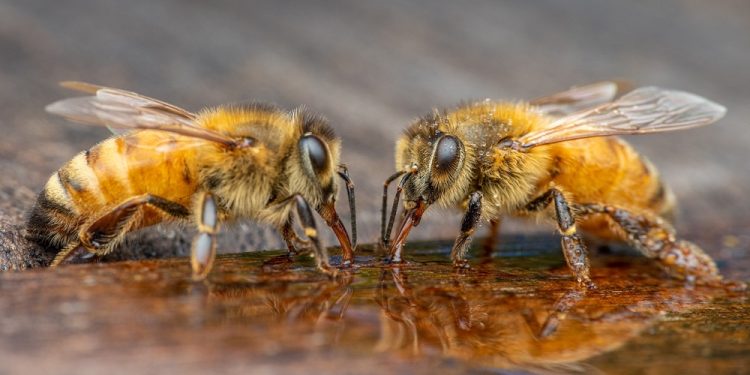
World Bee Day
World Bee Day is a holiday that’s observed on the 20th of May every year, and its sole purpose is to acknowledge the importance of bees and other pollinators in the world. Bees are necessary to pollinate not only our gardens and orchards but also our fields. It’s been estimated that approximately a third of the crops that are consumed in the world need to be pollinated by honey bees.
This includes melons, apples, cranberries, squash, broccoli, pumpkins, and almonds. Without the contribution of these little creatures, human nutrition would suffer, and modern agriculture as we know it today would collapse. And that’s why it’s important for all of us to protect bees, and this holiday is a good place to start with that mission.
The History of World Bee Day
This holiday was created on September 15th, 2014, by Slovenian beekeeper Boštjan Noč while he was driving to work at The Slovenian Beekeeper’s Association, where he was president.
He was listening to a radio program about holidays while heading to work and wondered why bees didn’t have their own holiday. After all, the world’s food supply relies on bees, and they’re facing extinction without human intervention. That’s when he decided that a World Bee Day should be created.
May 20th was chosen for the date of this holiday because that is the date on which Slovenian Anton Janša was born in 1734. Janša was a painter and apiarist who is known as one of the pioneers of modern apiculture and one of the greatest experts on the subject in the world.
Some Important Facts About Bees
We think one of the many reasons why it’s important to observe World Bee Day is to learn more about bees and the challenges they face. This is important because it seems like the fate of humans and bees are linked in ways that we might not fully understand.
That’s why we think it’s important for everyone to take the time to learn about them. Toward that goal, we’ve decided to list some of the facts that we’ve learned while researching this holiday.
- Bees have an incredible sense of smell, thanks to their 170 odor receptors.
- The average worker bee lives anywhere from 5 to 6 weeks.
- During his lifetime, a worker bee will produce about a 12th of a teaspoon of honey.
- The average queen bee can live up to 5 years. During that time, she can produce over 2,500 eggs per day.
- Over the past 20 years, billions of honey bees around the world have disappeared.
Observing World Bee Day
There are probably about 1001+ different ways for people to observe this holiday. First and foremost, they can learn more about bees and their contribution to the world. The next thing that a person can do is to plant some bee-friendly flowers in their garden or in pots on their balcony or terrace.
Another thing that people can do to protect bees is to avoid using pesticides on their outdoor plants and make sure that they don’t mow down wildflowers in old meadows. Using the hashtag #WorldBeeDay is also appreciated on this day.








